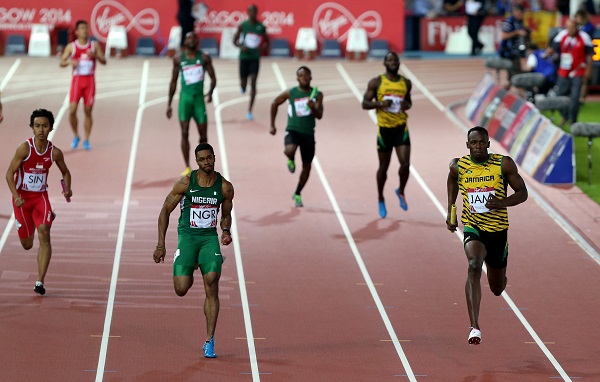New Delhi, The 2010 Commonwealth Games, mired in allegations of corruption and delay in completion of infrastructure, including against then Delhi Chief Minister Sheila Dikshit, would perhaps not have taken place if the Manmohan Singh government had not appointed a group of IAS officers to see that the work was completed on time.
“The Games were beset with delays, delays and more delays. We were given eight months to complete the work when it should have been ready a year before the inauguration,” one of the IAS officers, now retired, recalls.
The Games were allotted to India in 2003 – seven years before the event, with ample time for completion of the projects. In May 2005, India set up an organising committee, headed by Suresh Kalmadi, to oversee the work.
For holding of such Games, a Master Schedule is prepared in which all items are listed – from when the design of a stadium is to be submitted, the day to award the tender, when it will be completed, selecting the caterer, organise the opening and closing ceremonies and so on.
“There were about 5,000 items in the CWG master schedule in 36 separate areas, from catering, road transport, broadcasting — and when to begin and when to finish – to ensure that things are ready a year before the Games. However, the tragedy is no one followed the schedule… all gave it the bye,” the former IAS officer, who did not want to be named told IANS.
The Games were “almost on the brink of failure” when the Central government stepped in, and it was given to a group of six Indian Administrative Service officers to carry it through. Then Cabinet Secretary K.M. Chandrasekhar got in a couple of more IAS officers, and even put two officers in charge of each Games venue to see that things are completed on time and conducted properly.
“When we were tasked with the Games we saw that nothing was done. Out of 540 contracts only 17 had been finalised and 523 not done. This was December 2009, when they (organising committee) should have allotted everything months before, and trial runs should have been held, and checking of equipment.”
When Mike Fennell, then President of the CWG Federation, came and saw the poor state of preparations, he had proposed shifting the games to Melbourne while keeping minor events like cycling in Delhi.
“For the opening and closing ceremony, one has to decide what kind of ceremony will be held. For this there were 157 tenders, from appointment of musicians, artistes etc. Rehearsals should be conducted one year before. But in this case they were not ready even with the concept!” the official added.
In contrast, China which held the Asian Games that year in November, had already held the rehearsal of its opening ceremony a year before.
The team of IAS officers went on “fast-track mechanism” to deal with holding of the Games, including the opening and closing ceremonies. “There were 157 contracts to be signed. We had to run at full speed. And when you run at full speed, you are bound to make mistakes. But we couldn’t afford to look back,” the officer recalled.
In view of the very short time left to do things, most of those given contracts upped their price. “They said if you want take it, or forget it.”
The responsibility for the Games was divided, with the Delhi government in charge of roads and some stadia, the Public Works Department under the Central government in charge of other stadia, the Delhi Development Authority in charge of the Games Village, and the Organising Committee, where the IAS officers were placed, had to conduct the Games.
“We had nothing to do with construction of the stadia etc, only to ensure that the Games are held. We were in a very tight spot. Many were running away – they did not want to be part of the Games. But the team of IAS officers said ‘we have to push the Games through’,” he added.
Asked about the scam allegations, the official said: “Scams always come in when things are delayed. It should have been ready one year before, but we went in nine months before the event.”
“Some said the Games cost Rs 75,000 crore, but there was not so much money involved. It was around Rs 18,000 crore. Some people would have made some money…,” he added.
“We were given Rs 2,000 crore for conduct of the Games, and we returned Rs 300 crore. The stadia were completed just a month or so before the Games. There was leakage in the stadia during the rains, and we were trying to push in the equipment at the same time.
“The whole thing was like you are getting onto a running bus… But if you get in early, you can get a nice seat and get a good price.”
India hosted the Commonwealth Games from October 3-14, 2010. In her memoir, “Citizen Delhi: My Times, My Life”, Dikshit, who passed away last week, has spoken about the alleged irregularities surrounding the Commonwealth Games and the unacknowledged work by her team. She had felt upset by the appointment of the V.K. Shunglu committee and ignoring the hard work she and her officials had put in to complete the infrastructure.










